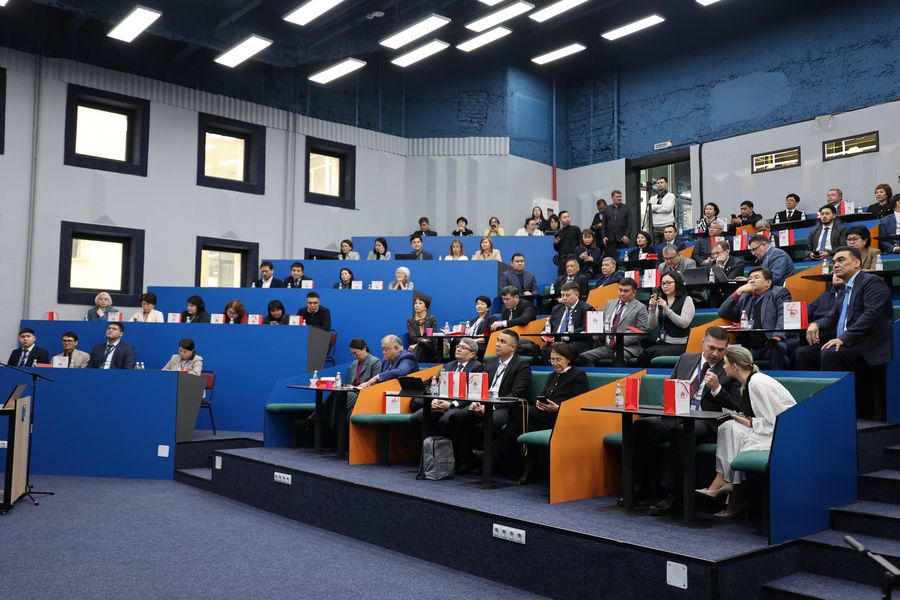AI-Sana at Satbayev University

AI-Sana: National Program for the Development of Artificial Intelligence in Kazakhstan
AI-Sana is a large-scale state initiative aimed at developing AI competencies among students, supporting startups, and creating a next-generation technological ecosystem. The program is implemented with the support of the Ministry of Science and Higher Education of the Republic of Kazakhstan and leading universities of the country, including Satbayev University.
Program Goals
- Educate 650,000 students in the fundamentals of artificial intelligence.
- Prepare 100,000 students to launch startups.
- Create 1,500 MVP projects followed by acceleration.
- Build an AI ecosystem with global potential.
The program is based on cooperation with global educational platforms and companies: Stanford University, Huawei, Coursera, Astana Hub, and others.

Satbayev University's Participation
Satbayev University is one of the 27 "anchor" universities responsible for integrating AI-Sana into the educational environment. The university implements Huawei ICT Academy courses and its own educational products in Kazakh and English.
The AI-Sana program provides a strong foundation: basic courses help reach a wide student audience, after which the university guides students toward practical projects, in-depth learning, and startup acceleration.
To date, Satbayev University has implemented more than 20 educational programs on artificial intelligence, uses AI agents to support the learning process, and has launched its own large-scale course.
1. Search and AI General Course
Course objective:
Introduce future Huawei HCIA AI engineers to the basics of search algorithms and core concepts of artificial intelligence through analysis of game-based scenarios.
What students learned:
- Understand how search algorithms work (depth-first, breadth-first, heuristic search).
- Connect the use of search methods with the foundations of machine learning and AI.
- Design simple game scenarios and solve optimization problems using search algorithms.
Practical application:
- Automate decision-making in game and business logic.
- Develop prototypes of intelligent agents.
- Prepare for more complex AI and machine learning tasks.
Training results: 1,626 students completed the course in Kazakh and 372 in Russian.
2. Overview of AI
Course objective:
Provide a general overview of the history, directions, and prospects of artificial intelligence development in an engaging format with animation and real-life examples.
What students learned:
- Studied the chronology and key stages of AI development.
- Learned about major schools of thought and technological trends (machine learning, neural networks, expert systems, etc.).
- Analyzed ethical and social aspects of AI implementation.
Practical application:
- Critically evaluate the capabilities of AI solutions.
- Develop AI implementation strategies across industries.
- Design concepts for digital transformation of enterprises.
Training results: 985 students completed the course in Kazakh and 278 in Russian.
3. Artificial Intelligence Technology and Applications
Course objective:
Equip students with practical skills to apply machine learning and deep learning methods for designing AI solutions.
What students learned:
- Master core machine learning algorithms (regression, classification, clustering).
- Work with neural networks: from simple multilayer perceptrons to deep architectures.
- Implement end-to-end projects: from data preparation to model deployment.
Practical application:
- Design and implement AI applications: computer vision, natural language processing, recommender systems.
- Prepare technical requirements and prototypes for AI projects.
- Participate in the planning and implementation of large-scale AI-based solutions.
Training results: 85 students completed the course in Kazakh and 25 in Russian.
Proprietary Course: “Artificial Intelligence for Everyone”
The course was developed by Satbayev University and is available in two languages. More than 12,000 people have completed it, including 654 instructors. The course focuses on the practical application of AI in engineering and applied tasks.
AI-Sana Program Resources
